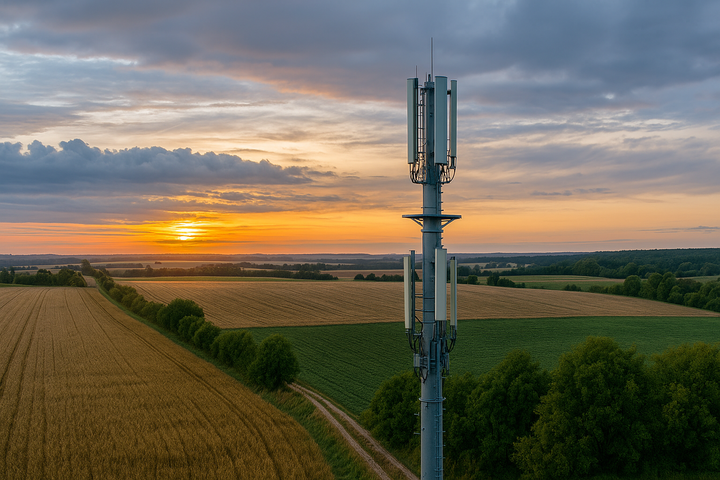Disconnected: How Federal Rollbacks Betrayed Eastern Washington’s Broadband Future

In an era where digital connectivity is essential for education, healthcare, and economic opportunity, the Trump administration's abrupt announcement of the termination of the Digital Equity Act represents a profound setback for rural and underserved communities.
Enacted in 2021 as part of a broader $65 billion broadband investment, the Act aimed to bridge the digital divide by providing $2.75 billion in grants to help underserved communities access high-speed internet, technology, and digital literacy training. President Trump characterized the program as "racist" and a "woke handout based on race", echoing The Heritage Foundation's demand for the cancellation of the program referring to it as 'the hyper-woke Digital Equity Act'. Both the White House and The Heritage Foundation misrepresent its purpose but they also undermine bipartisan efforts to ensure equitable digital access for all Americans.
Baumgartner’s Committee Roles and Responsibilities
Congressman Michael Baumgartner, who represents Eastern Washington communities in the 5th District, serves on the 'House Committee on Education and the Workforce' and on the powerful 'House Judiciary Committee', including the Subcommittee on Courts, Intellectual Property, and the Internet. These committees are instrumental in shaping policies related to education, workforce development, and digital infrastructure. Despite his influential positions, Rep. Baumgartner has remained conspicuously silent on the executive action that lead to the termination of the Digital Equity Act. His silence raises concerns about his commitment to addressing the digital needs of his constituents and his willingness to stand up to the Trump Administration when his constinuents' access to technology is revoked.
Impact on Rural and Underserved Communities
The cessation of the Digital Equity Act's funding has far-reaching implications for various communities in Eastern Washington:
- Tribal Communities: The Spokane Tribe and other Indigenous populations face significant challenges in accessing reliable internet, affecting education, healthcare, and economic development.
- Low-Income Families: Households struggling financially risk losing access to affordable internet services, hindering students' ability to participate in online learning and adults' access to remote work opportunities.
- Senior Citizens and Individuals with Disabilities: These groups often rely on digital services for healthcare and social connection; the rollback threatens their ability to engage with essential services.
- Rural Residents: Communities in remote areas may see delays or cancellations in state/federal broadband infrastructure projects, perpetuating the digital divide.
Voices from the Affected
According to the National Congress of American Indians, over 18% of tribal reservation residents have no broadband access whatsoever, compared to 4% of Americans nationwide. In a 2022 FCC filing, the Affiliated Tribes of Northwest Indians urged federal leaders to prioritize tribal broadband, stating: “Digital inclusion is not a luxury, it’s a necessity for tribal sovereignty and resilience.”
Meanwhile, Eastern Washington educators have raised alarms about stalled digital equity funding. In 2023 testimony before the Washington State House, Walla Walla Public Schools Superintendent Wade Smith warned that without broadband support, “we risk leaving rural students behind.”
And in Spokane, Library Director Andrew Chanse confirmed that pandemic-era broadband grants funded hot spot lending and tech literacy workshops for underserved residents. “Those programs filled a critical need,” he said in 2022. “Without continued funding, demand will go unmet.”
The Importance of Digital Equity
Digital equity ensures that all individuals and communities have the information technology capacity needed for full participation in society, democracy, and the economy. It encompasses not only access to high-speed internet but also the availability of devices, digital literacy training, and support services. Achieving digital equity is essential for educational success, economic opportunity, and civic engagement. Without it, existing socioeconomic disparities are exacerbated, leaving marginalized communities further behind.
The Fight for Digital Justice Isn't Over
The termination of the Digital Equity Act and the silence from key policymakers like Rep. Baumgartner threaten to widen the digital divide in Eastern Washington. As communities grapple with the loss of critical resources, the need for advocacy and renewed commitment to digital inclusion becomes ever more urgent. Ensuring equitable access to digital infrastructure is not just a policy issue; it's a matter of social justice and economic necessity.


